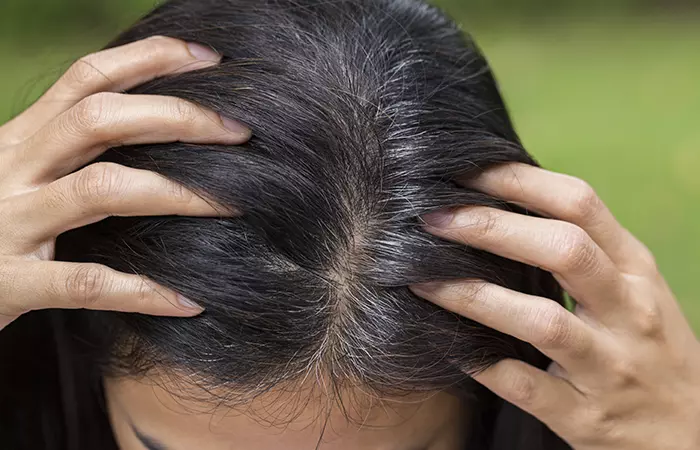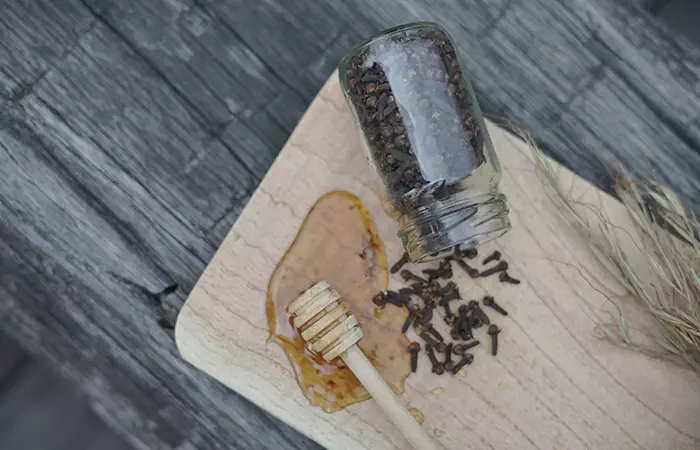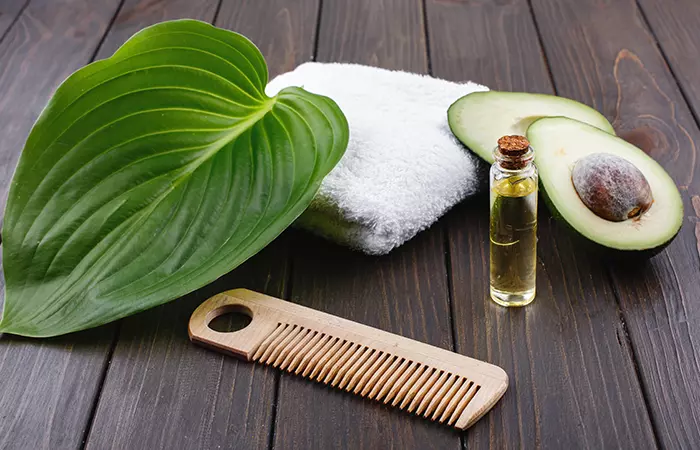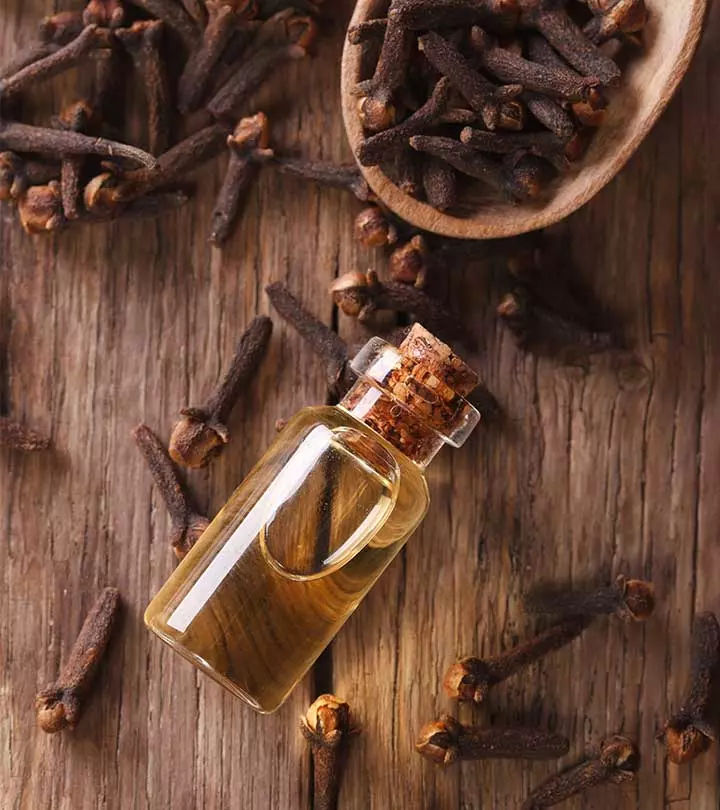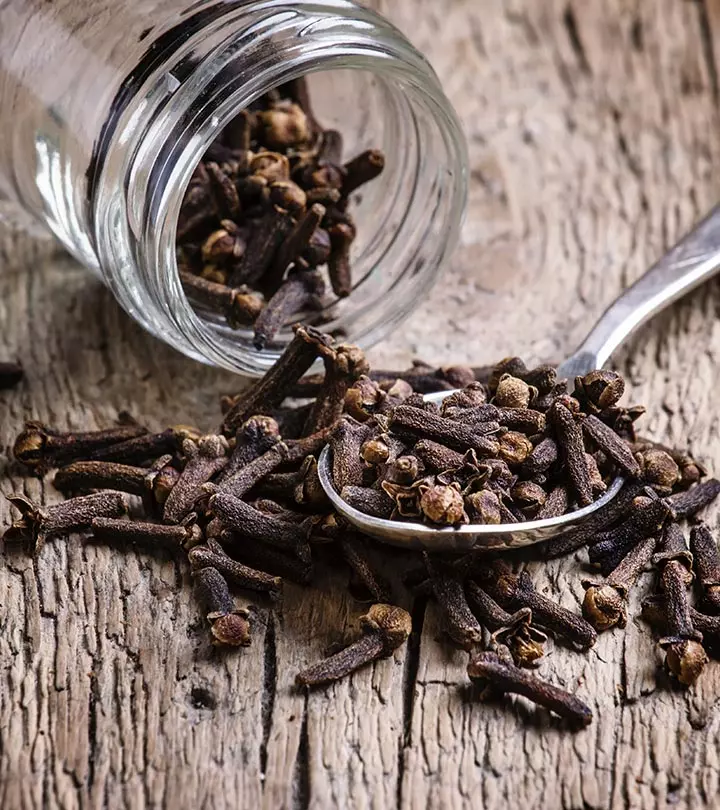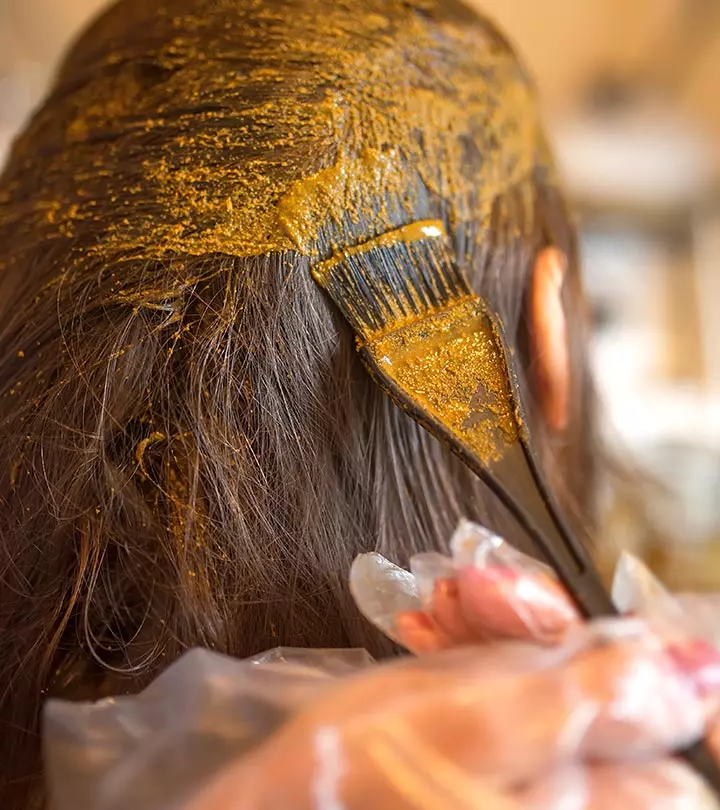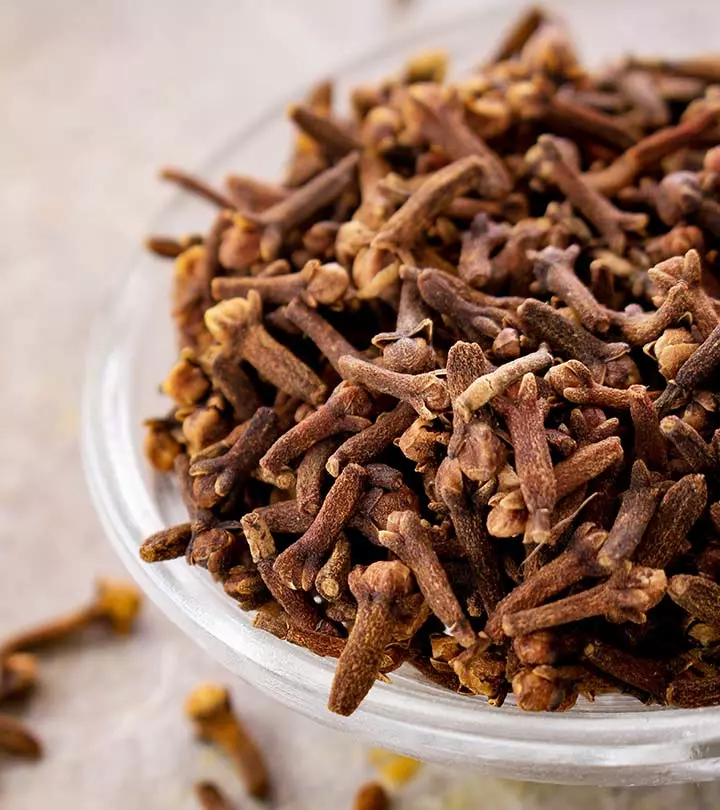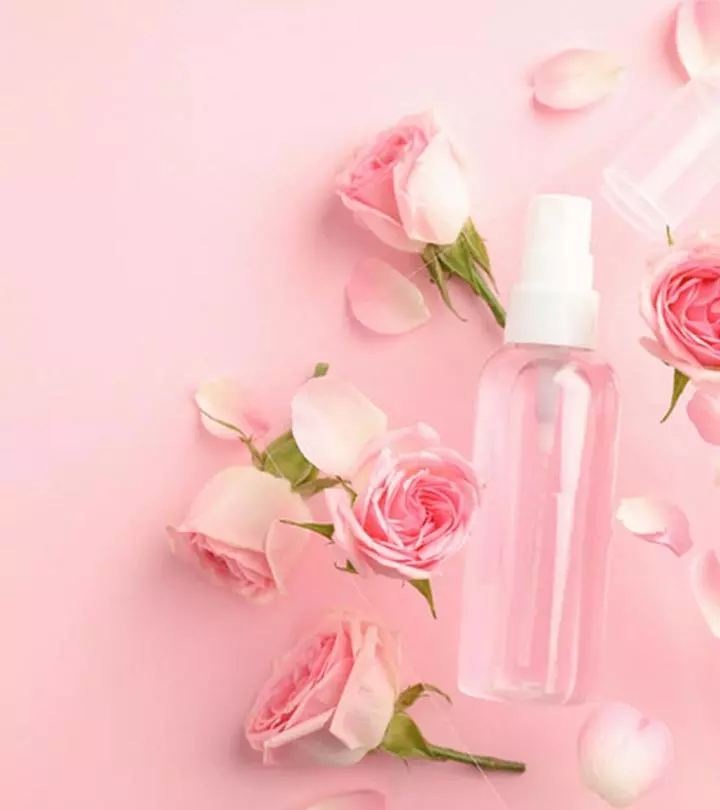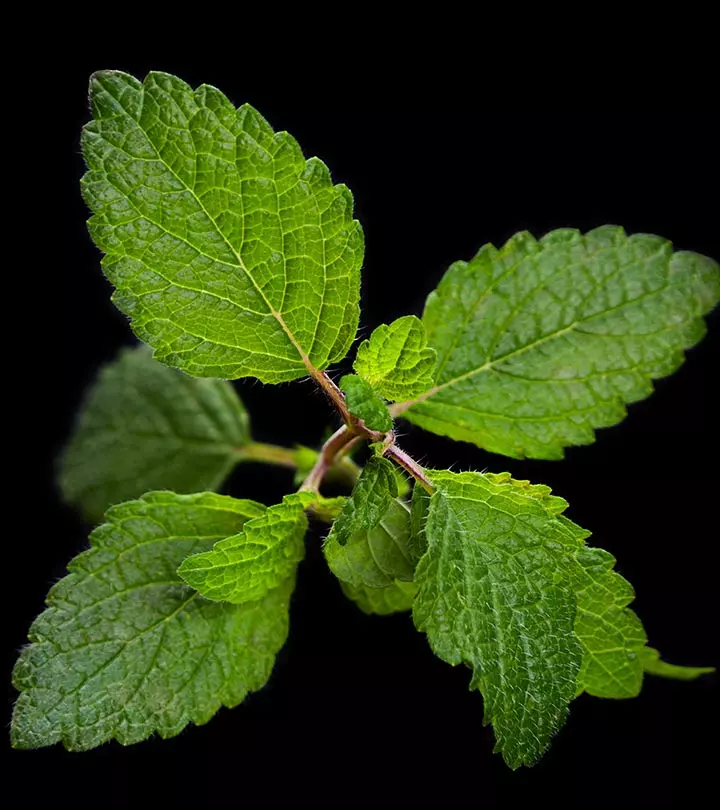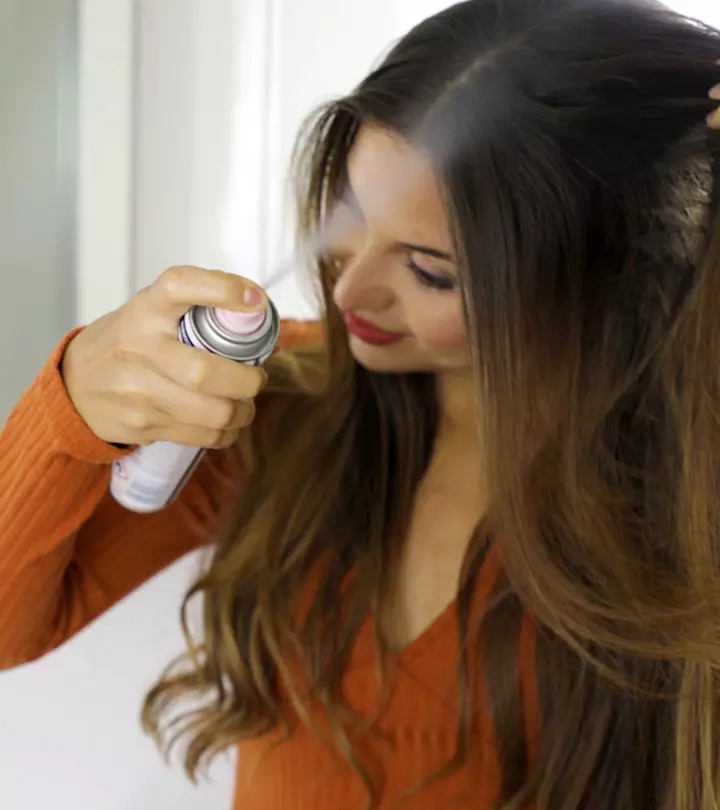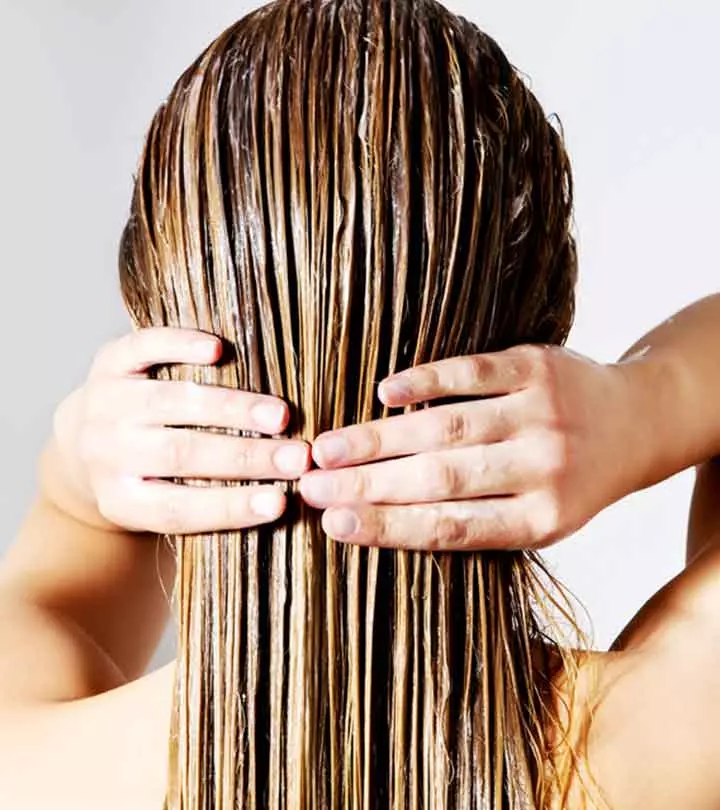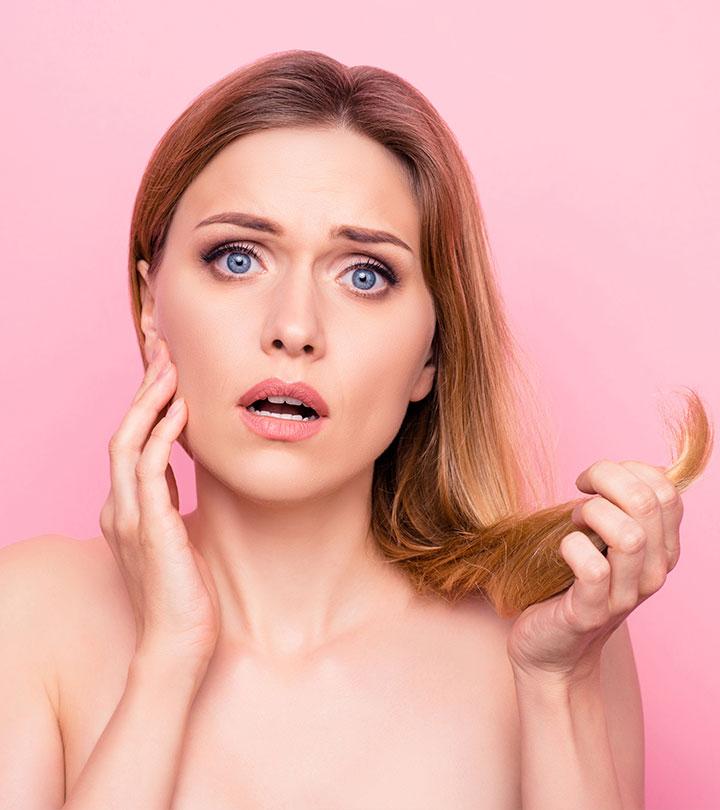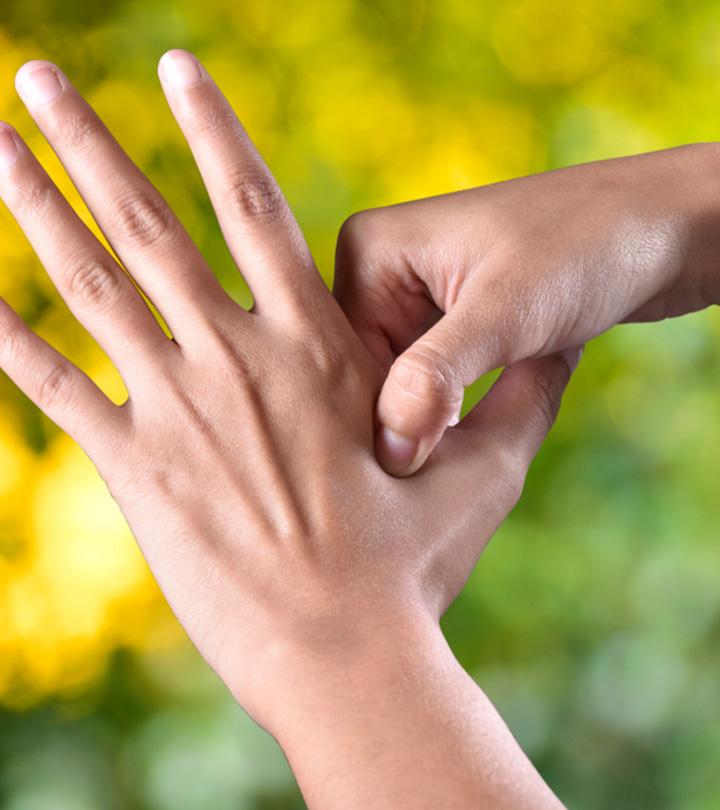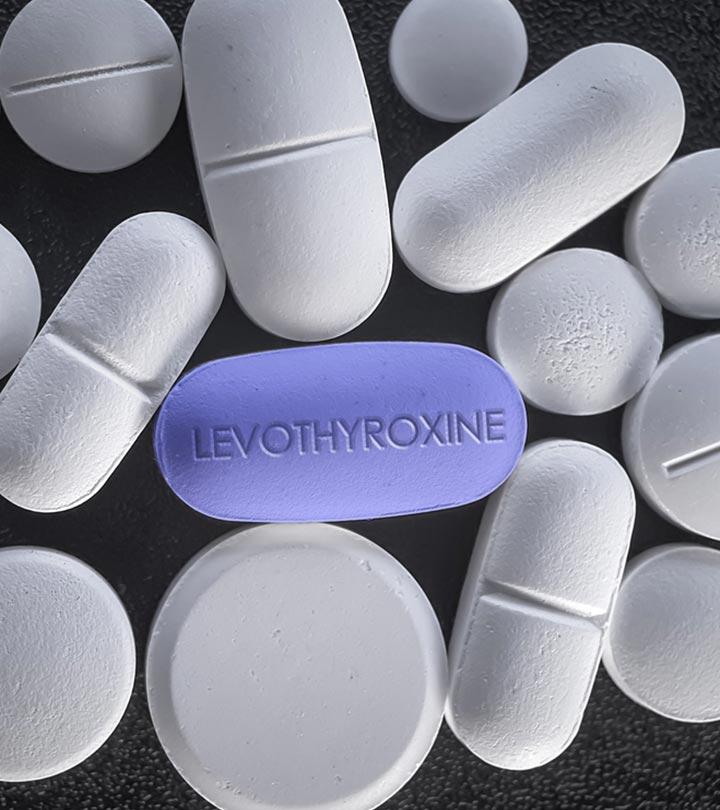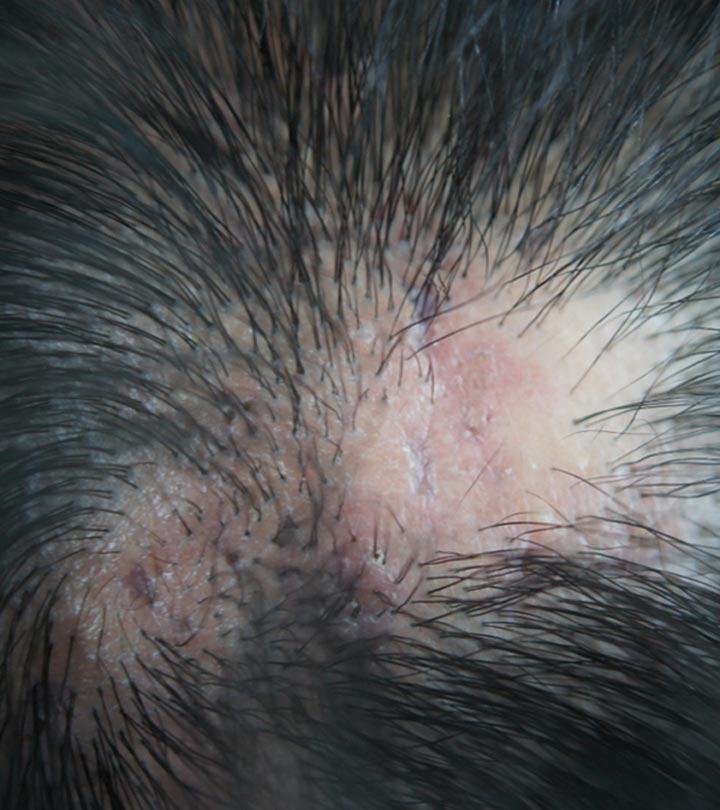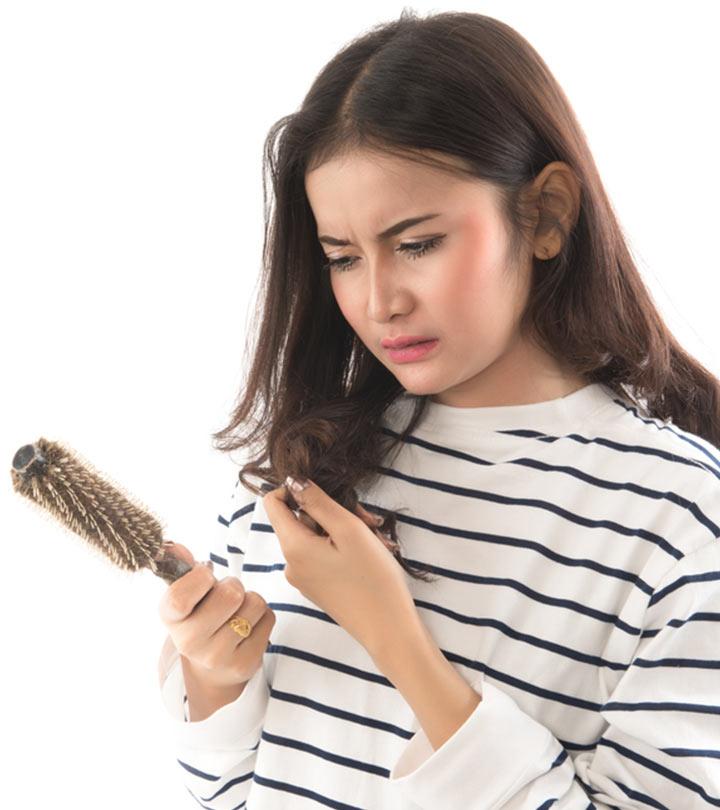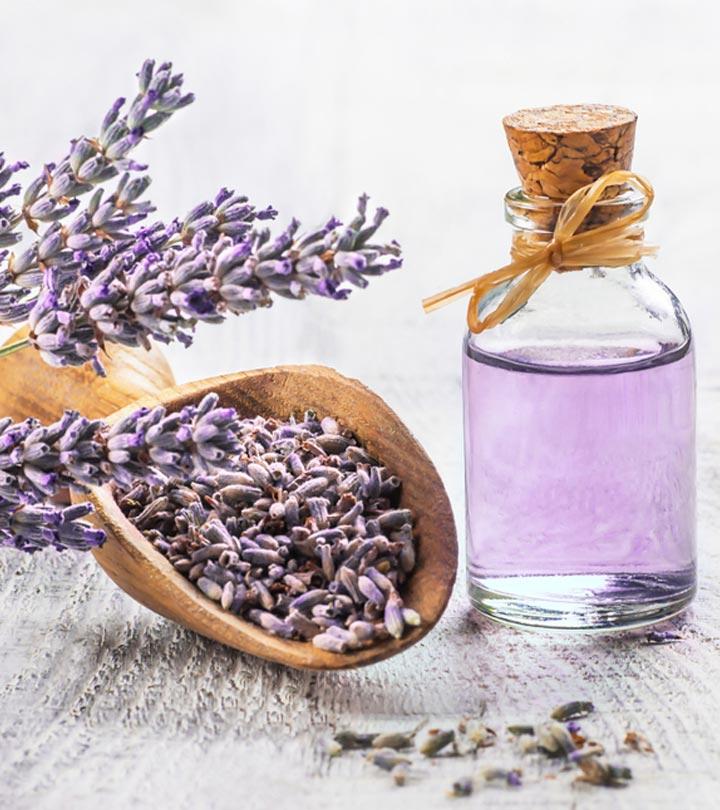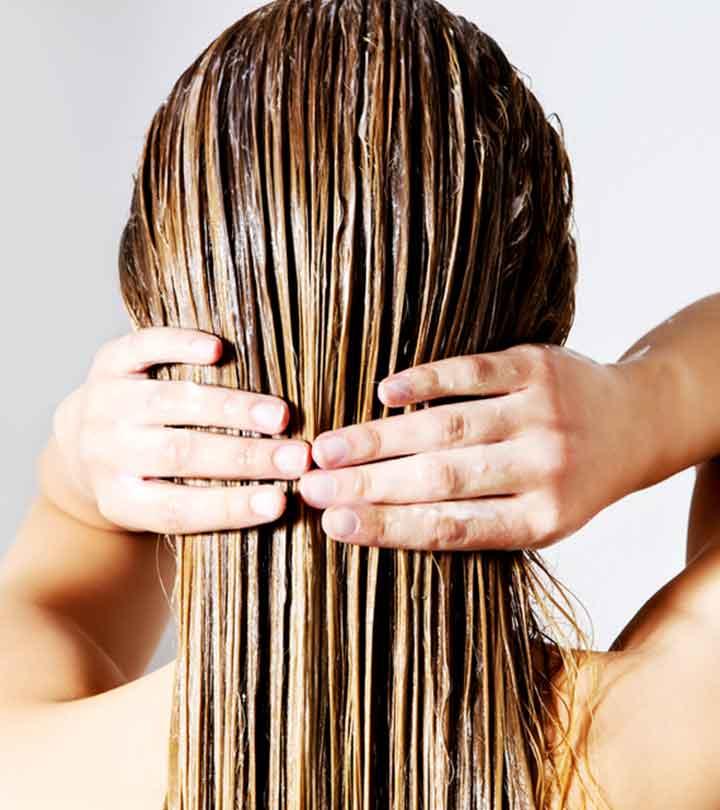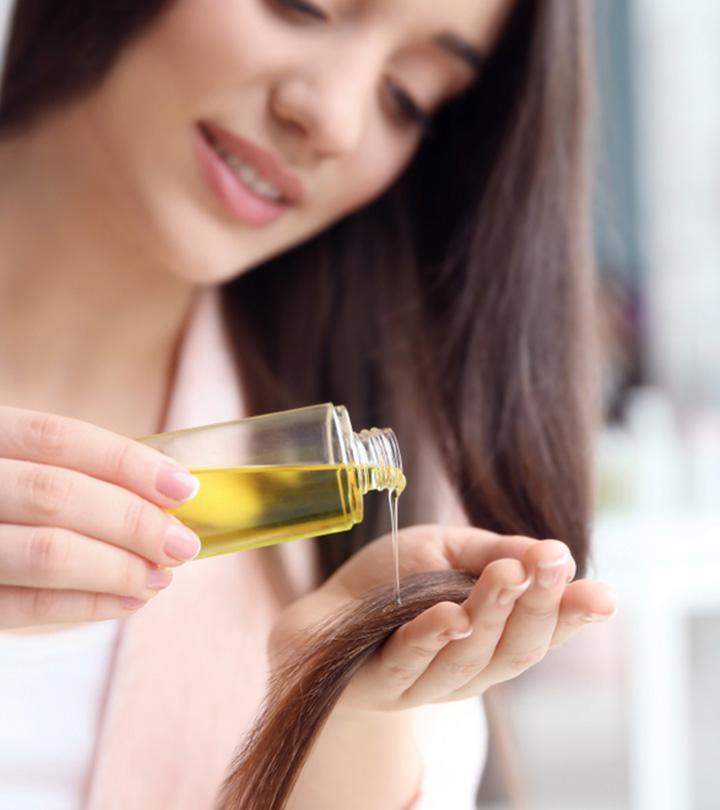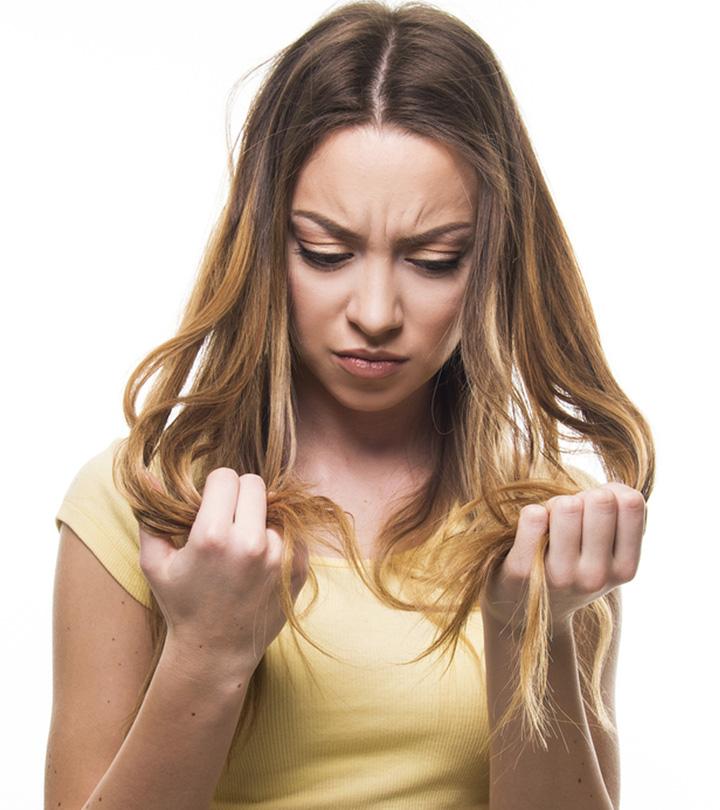Clove Water For Hair: 7 Benefits And Ways To Use It
A few spritzes of this spice-infused water can remarkably reduce your hair fall.
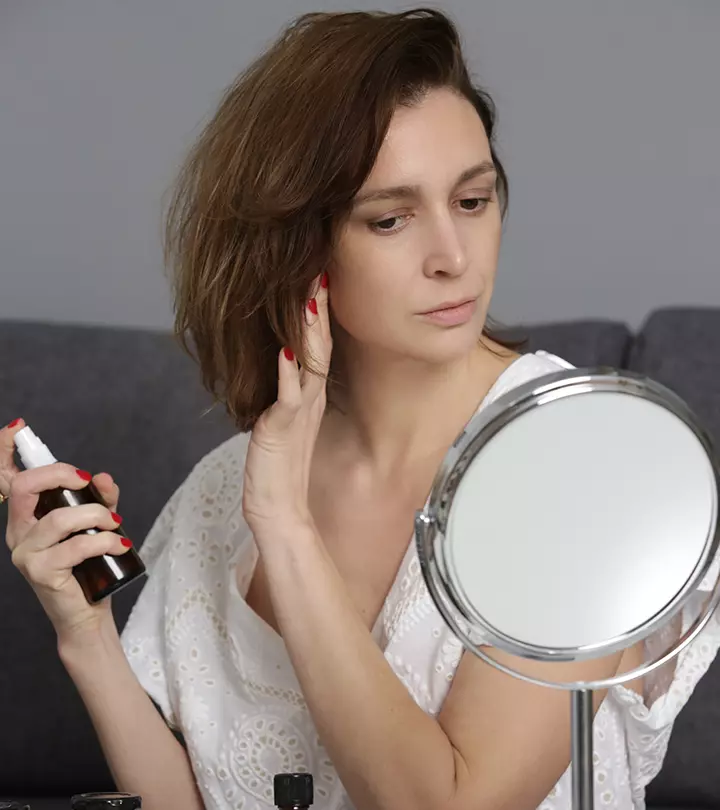
Image: Shutterstock
If you have been searching for one remedy that takes care of all your hair needs, we suggest you try clove water for your hair. Clove is commonly used as a healthy spice in different culinary preparations. However, you may not know that it combats hair fall and other scalp conditions as well – and it is an ayurvedic spice that is readily available, affordable, and suitable for most hair types. In this article, we discuss the benefits of clove water for hair, its potential side effects, and the different ways to use it. Keep reading.
In This Article
What Is Clove Water?
Clove water is a DIY infusion prepared by boiling cloves in hot water. This simple technique of hydrodistillationi A traditional method of extracting chemical compounds and essential oils from different plants. helps transfer the bioactive compounds from the spice to the water, making it suitable for therapeutic use (1).
Clove water is rich in eugenol that lends it its antimicrobiali Multiplication or growth of microbes such as bacteria, viruses, or fungi in a certain body part or the entire body. properties (2). Its phenolic acid and flavonoid content make it a powerful antioxidant remedy that may be beneficial for your hair (3). Let us scroll down to the next section to see how clove water works for your hair.
How Does Clove Water Work For Hair?
Factors like age, scalp infections, poor nutrition, and exposure to environmental aggressors can slow down hair growth (4),( 5),( 6),( 7). Clove water is rich in phytonutrients like eugenol that nourish, strengthen, and revitalize dormant follicles and promote new hair growth (8). Cloves can also protect the scalp from dandruff and fungal infections that contribute to hair loss (9).
 Did You Know?
Did You Know?Clove water provides a host of benefits. Let us scroll down to the next section to see what they are.
7 Benefits Of Clove Water For Hair
1. May Stimulate Hair Growth
Clove water may help promote hair growth and prevent hair loss. In studies, clove oil in emu oil emulsion had exhibited anti-hair loss properties and stimulated hair growth (8). Another study suggests that gallic acid (a phenolic acid in cloves) may activate genes that regulate hair growth (10), (11).
Helina, a blogger, shared her experience of using clove water as a leave-in conditioner for her hair. She said, “It has grown a bit, shinier than before, and new hair has started growing (i).”
2. Prevents Oxidative Stress
Stress, pollution, sun exposure, smoking, and irregular sleeping and eating habits contribute to the production of free radicals in the body (12), (13), (14). Research suggests a strong association between oxidative stressi An imbalance of free radicals and antioxidants in the body that can lead to premature gray hair and hair loss. and alopecia (15). Clove is rich in polyphenols and other antioxidants that may lower oxidative stress-related hair loss (10).
3. Treats Dandruff
Overproduction of the Malassezia yeast is the primary cause of dandruff. The antifungal properties of clove may help combat dandruff (9). Anecdotal evidence suggests that its astringent properties can reduce oil production on the scalp, while its anti-inflammatory properties can prevent itchiness and scalp irritation.
4. Prevents Scalp Infections and Foul Odor
Excessive sweating, fungal conditions, or improper scalp hygiene can lead to infections and foul odor on the scalp. The antibacterial, antifungal, and anti-inflammatory properties of clove water help treat scalp conditions like folliculitisi An infection of the hair follicle caused by bacteria that causes inflammation, redness, and itchiness in the affected area. and ringworm (16),(17). Moreover, the refreshing aroma of clove water leaves your scalp feeling clean and fresh all day.
5. Treats Head Lice
Clove has been used in Indian households for centuries to treat head lice.
According to research conducted on head lice collected from 51 volunteers, a formulation made of clove oil diluted in sunflower oil successfully eliminated 90% of the lice within 2 hours (18).
6. Improves Hair Strength & Texture
Anecdotal evidence suggests that cloves are a rich source of vitamins A, B, C and K and antioxidants that may help strengthen the hair shaft and minimize breakage.
7. May Prevent Premature Graying
Oxidative stress can affect the melanin production in your hair, leading to premature gray hair (19). The antioxidants and polyphenols in clove water may help combat oxidative damage and maintain the natural color of your hair.
These are the ways clove water can benefit your hair. But can you start using it right away? Or does it have any side effects?
Side Effects Of Using Clove Water On Hair
Topical application of clove water on the hair and scalp is generally considered safe. Unlike clove essential oil, the phytonutrients in clove water are not concentrated. This minimizes the risk of allergic reactions. However, clove water may lead to dry scalp in some individuals. Conduct a patch test to check for an allergic reaction before using clove water on your hair.
 Quick Tip
Quick TipCan I Use Clove Water On My Hair Every Day?
Applying clove water every day may not cause any serious side effects. However, it is best to not use it every day as excess use may cause allergic reactions.
Anecdotal evidence advises against using hair treatments daily. Washing your hair every two to three days is recommended. Overusing treatments or washing too often may lead to hair loss, scalp irritation, and dryness. Hence, limit the use of treatments like clove water only when necessary.
Use concentrated clove water 2 to 3 times a week. You also may sprinkle diluted clove water on your hair as a hair spray.
Here are some simple ways to use clove water for improved hair growth.
How To Use Clove Water For Hair Growth
1. Clove Water And Reetha Shampoo
Reetha contains natural surfactantsi Chemicals used in soaps and detergents that allow them to mix with other substances to help cleanse the scalp. called saponins. When combined with clove water, reetha cleanses the scalp and prevents bacterial or fungal infections (20), (21).
You Will Need
- 3-4 tablespoons of clove water
- 2 tablespoons of reetha powder
What You Need To Do
- Mix both ingredients in a bowl.
- Apply the mixture to your scalp and hair and massage with your fingertips to work up a lather.
- Leave it on for 5 minutes.
- Rinse off with lukewarm water.
How Often?
2-3 times a week.
2. Clove Water And Honey Conditioner
Honey is a natural hair conditioner that enhances shine, reduces frizz, and prevents dandruff-related hair loss (22), (23).
You Will Need
- 1-2 tablespoons of honey
- 2 ½ tablespoons of clove water
What You Need To Do
- Mix the ingredients in a bowl.
- Apply throughout the length of your hair and leave it on for about 10 minutes.
- Rinse off with cold water.
How Often?
2-3 times a week.
3. Clove Water, Avocado, And Rosemary Oil Hair Growth Mask
Avocados are a rich source of vitamin E, which may reduce hair loss (24). Rosemary oil is often used as a natural treatment for androgenetic alopeciai A hereditary condition that causes permanent hair loss due to the body’s abnormal response to androgen hormones. due to its ability to increase hair count (25). It is also used in aromatherapy to reduce stress levels and boost hair growth.
You Will Need
- 1-2 tablespoons of clove water
- 1 ripe avocado
- 1-2 drops of rosemary essential oil
What You Need To Do
- Mash the avocado and mix it with clove water and rosemary oil.
- Apply the mixture throughout the length of your hair.
- Cover your head with a shower cap and leave it on for 20-30 minutes.
- Rinse off with lukewarm water.
How Often?
1-2 times a week.
4. Clove Water, Hibiscus, And Yogurt Hair Conditioning Mask
Hibiscus is a popular ayurvedic herb that promotes hair growth and improves hair texture (26). Yogurt can help deep condition dry, damaged hair (27).
You Will Need
- 3-4 hibiscus leaves and 2-3 hibiscus flowers (only petals)
- 2-3 tablespoons of curd
- 1 ½ -2 tablespoons of clove water
What You Need To Do
- Blend the hibiscus leaves and petals into a smooth paste.
- Add the other ingredients to the paste and mix well.
- Apply to your scalp and the length of your hair.
- Leave it on for 20-30 minutes.
- Rinse off with lukewarm water.
How Often?
1-2 times a week.
5. Clove Water And Aloe Vera Leave-In-Conditioner
Aloe vera contains vitamins A, C, and E and phenolic compounds that nourish your hair and prevent dandruff, inflammation, and infections on the scalp (28), (29).
You Will Need
- 1-2 tablespoons of clove water
- 1-2 tablespoons of aloe vera gel
What You Need To Do
- Combine the ingredients in a bowl to get a thin consistency.
- Massage it into your scalp and apply from the roots to the tips.
- Leave it on for 5 minutes and gently comb your hair to remove tangles.
How Often?
Once daily or as required.
6. Clove Water And Methi Hair Mist
Methi or fenugreek seeds work as natural hair conditioners as they contain mucilaginous compounds that absorb moisture and act as a hydrating agent (30), (31). Methi is also extensively used as dandruff treatment in ayurvedic preparations for its anti-inflammatory and antimicrobial properties (32).
You Will Need
- 2-3 tablespoons of clove water
- ½ cup of mineral water
- 2 tablespoons of methi seeds
What You Need To Do
- Soak the methi seeds overnight or for 6 hours in mineral water.
- Strain the methi water and mix it with clove water.
- Store it in a spray bottle and use it when your hair feels dry.
How Often?
2-3 times daily or when required.
If you are planning to try out these hair recipes, check out the step-by-step instructions to prepare clove water at home.
How To Make Clove Water For Hair Growth
Here is a step-by-guide for preparing clove water at home.
You Will Need
- 10-15 cloves
- 2 cups of water
What You Need To Do
- Bring the water to a boil in a saucepan.
- Add the cloves to the boiling water and turn off the heat.
- Cover and let it cool for an hour.
- Strain the water and store it in a spray bottle for use later.
Infographic: 4 Ways To Use Clove Water For Hair
While clove is a popular spice used in several culinary preparations, clove water is rich in eugenol and essential vitamins and minerals that combat infections and boost hair growth. Using clove water for your hair is simple. In the following infographic, we have listed 4 easy ways to include clove water in your hair care routine. Check them out.

Illustration: StyleCraze Design Team
Conclusion
Clove water is a simple herbal treatment you can include in your hair care routine. It is filled with antioxidants and has antiseptic properties and essential nutrients that boost hair growth and overall hair health. You can combine it with simple kitchen ingredients or simply spray it on your hair to nourish your hair. However, practice caution while using clove water as it may cause dryness and irritation. If you develop any adverse reactions, stop using it immediately.
Frequently Asked Questions
Can I use clove water on my hair every day?
Yes, diluted clove water is safe for daily use. Use concentrated clove water 2-3 times a week. Anecdotal evidence suggests that excess use of clove water may cause dryness and scalp irritation.
What can I mix with cloves for hair growth?
Herbs such as bhringraj (Eclipta Alba L.), amla (Phyllanthus Emblica Linn.) and rosemary oil (Rosmarinus officinalis) can be mixed with cloves for faster hair growth (33), (11), (25).
Can I leave clove water on my hair overnight?
It is not advisable to leave clove water on your hair overnight as it may dry out your scalp or cause irritation.
Key Takeaways
- Clove water is a natural hair remedy with antioxidant, anti-inflammatory, and antimicrobial properties that can stimulate hair growth and treat dandruff.
- Clove water can be mixed with moisturizers, such as amla extract and rosemary oil for enhanced hair benefits.
- Overuse of clove water on hair may lead to dry scalp and irritation.
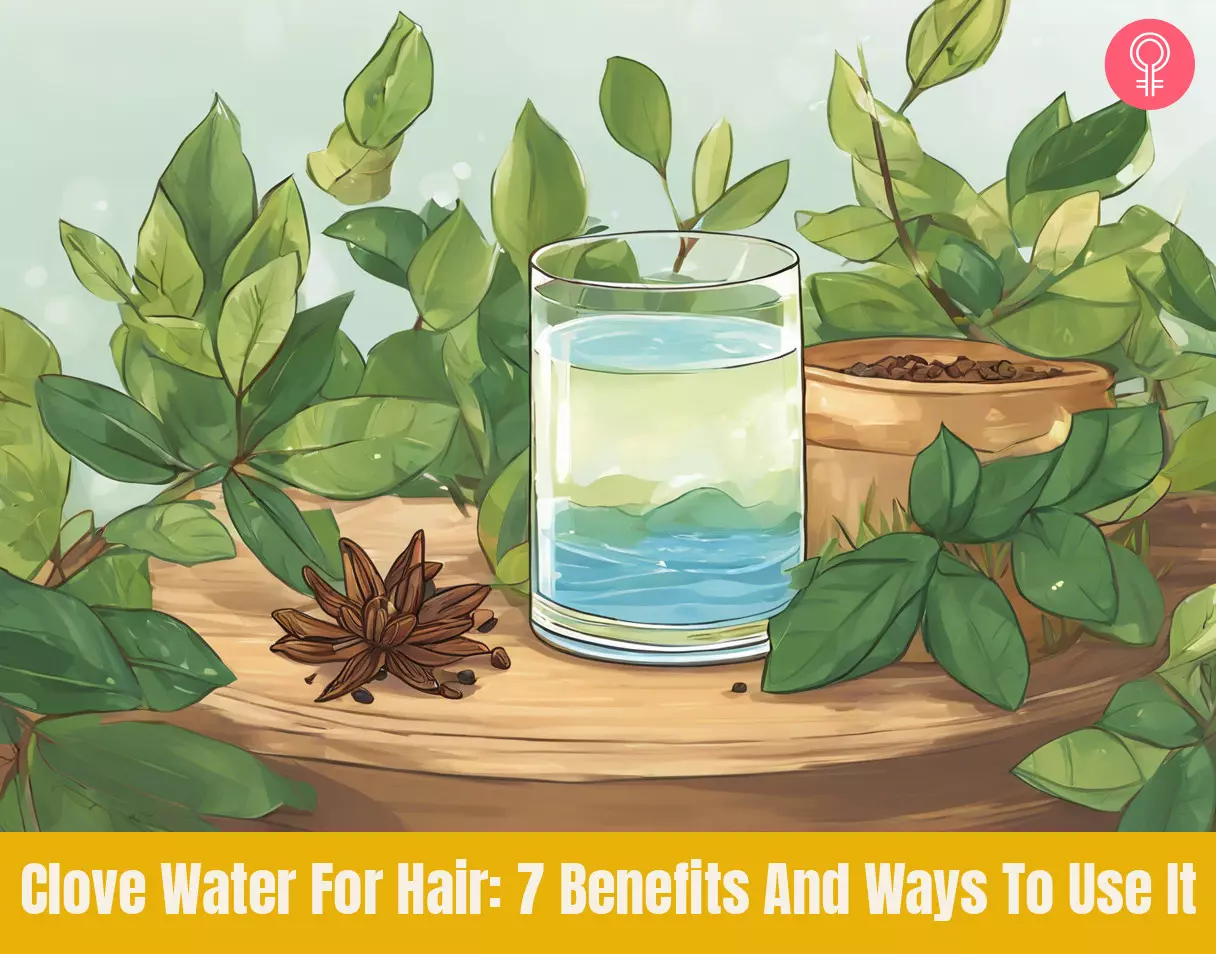
Image: Stable Diffusion/StyleCraze Design Team
Learn how to make clove water to help boost hair growth. Click on the video below to follow these simple steps and you will be on your way to luscious locks.
Personal Experience: Source
StyleCraze's articles are interwoven with authentic personal narratives that provide depth and resonance to our content. Below are the sources of the personal accounts referenced in this article.
(i). Clove Waterhttps://meandmyethiopianhair.wordpress.com/2023/01/31/clove-water/
References
Articles on StyleCraze are backed by verified information from peer-reviewed and academic research papers, reputed organizations, research institutions, and medical associations to ensure accuracy and relevance. Read our editorial policy to learn more.
- Conventional and modified hydrodistillation method for the extraction of glucosinolate hydrolytic products: a comparative account
https://www.sciencedirect.com/topics/agricultural-and-biological-sciences/hydrodistillation#:~:text= - Biological Properties and Prospects for the Application of Eugenol—A Review
https://www.ncbi.nlm.nih.gov/pmc/articles/PMC8036490/ - Safety assessment of a standardized polyphenolic extract of clove buds: Subchronic toxicity and mutagenicity studies
https://www.sciencedirect.com/science/article/pii/S2214750016300324 - A Comment on the Science of Hair Aging
https://www.ncbi.nlm.nih.gov/pmc/articles/PMC6369639/ - Scalp Condition Impacts Hair Growth and Retention via Oxidative Stress
https://www.ncbi.nlm.nih.gov/pmc/articles/PMC6369642/ - Diet and hair loss: effects of nutrient deficiency and supplement use
https://www.ncbi.nlm.nih.gov/pmc/articles/PMC5315033/ - Understanding Hair Loss due to Air Pollution and the Approach to Management
https://www.researchgate.net/publication/295859437_Understanding_Hair_Loss_due_to_Air_Pollution_and_the_Approach_to_Management - Preparation and evaluation of clove oil in emu oil self-emulsion for hair conditioning and hair loss prevention
https://www.researchgate.net/publication/301204003_Preparation_and_evaluation_of_clove_oil_in_emu_oil_self-emulsion_for_hair_conditioning_and_hair_loss_prevention - COMPARATIVE STUDY OF ANTI DANDRUFF ACTIVITY OF SYZYGIUM AROMATICUM AND ZINGIBER OFFICINALE
https://www.researchgate.net/publication/286931805_COMPARATIVE_STUDY_OF_ANTI_DANDRUFF_ACTIVITY_OF_SYZYGIUM_AROMATICUM_AND_ZINGIBER_OFFICINALE - Clove (Syzygium aromaticum): a precious spice
https://www.ncbi.nlm.nih.gov/pmc/articles/PMC3819475/#:~:text= - Phyllanthus emblica Extract-loaded Transfersomes for Hair Follicle Targeting: Phytoconstituents, Characterization, and Hair Growth Promotion
https://pubmed.ncbi.nlm.nih.gov/35781257/#:~:text= - Free radicals, antioxidants and functional foods: Impact on human health
https://www.ncbi.nlm.nih.gov/pmc/articles/PMC3249911/#ref3 - A bidirectional relationship between sleep and oxidative stress in Drosophila
https://www.ncbi.nlm.nih.gov/pmc/articles/PMC6042693/#:~:text=C - Dietary Regulation of Oxidative Stress in Chronic Metabolic Diseases
https://www.ncbi.nlm.nih.gov/pmc/articles/PMC8391153/#:~:text= - Oxidative stress and alopecia areata
https://www.ncbi.nlm.nih.gov/pmc/articles/PMC4564047/ - Chemical Composition, Antibacterial Properties and Mechanism of Action of Essential Oil from Clove Buds against Staphylococcus aureus
https://www.researchgate.net/publication/307949788_Chemical_Composition_Antibacterial_Properties_and_Mechanism_of_Action_of_Essential_Oil_from_Clove_Buds_against_Staphylococcus_aureus - Evaluation of antifungal activity in essential oil of the Syzygium aromaticum (L.) by extraction, purification and analysis of its main component eugenol
https://www.ncbi.nlm.nih.gov/pmc/articles/PMC3768706/#:~:text= - In vitro efficacy of five essential oils against Pediculus humanus capitis
https://pubmed.ncbi.nlm.nih.gov/29264717/#:~:text= - Oxidative Stress in Ageing of Hair
https://www.ncbi.nlm.nih.gov/pmc/articles/PMC2929555/#:~:text= - Triterpenoid Saponins from Washnut (Sapindus mukorossi Gaertn.)—A Source of Natural Surfactants and Other Active Components
https://www.ncbi.nlm.nih.gov/pmc/articles/PMC9502486/ - Antimicrobial activity of Sapindus mukorossi and Rheum emodi extracts against H pylori: In vitro and in vivo studies
https://www.ncbi.nlm.nih.gov/pmc/articles/PMC4087774/ - Honey in dermatology and skin care: a review
https://pubmed.ncbi.nlm.nih.gov/24305429/ - Therapeutic and prophylactic effects of crude honey on chronic seborrheic dermatitis and dandruff
https://pubmed.ncbi.nlm.nih.gov/11485891/ - Effects of Tocotrienol Supplementation on Hair Growth in Human Volunteers
https://www.ncbi.nlm.nih.gov/pmc/articles/PMC3819075/ - Rosemary oil vs minoxidil 2% for the treatment of androgenetic alopecia: a randomized comparative trial
https://pubmed.ncbi.nlm.nih.gov/25842469/ - Hibiscus syriacus Extract from an Established Cell Culture Stimulates Skin Wound Healing
https://www.ncbi.nlm.nih.gov/pmc/articles/PMC5733167/#B8 - Ethnopharmacological survey of home remedies used for treatment of hair and scalp and their methods of preparation in the West Bank-Palestine
https://www.ncbi.nlm.nih.gov/pmc/articles/PMC5499037/ - ALOE VERA: A SHORT REVIEW
https://www.ncbi.nlm.nih.gov/pmc/articles/PMC2763764/ - A double-blind, placebo-controlled trial of an Aloe vera (A. barbadensis) emulsion in the treatment of seborrheic dermatitis
https://www.tandfonline.com/doi/abs/10.3109/09546639909055904 - https://www.tandfonline.com/doi/abs/10.3109/09546639909055904
https://www.sciencedirect.com/science/article/abs/pii/S0141813012004813#:~:text= - A Comprehensive Review on Plant-Derived Mucilage: Characterization, Functional Properties, Applications, and Its Utilization for Nanocarrier Fabrication
https://www.ncbi.nlm.nih.gov/pmc/articles/PMC8037796/ - A Multimodal Hair-Loss Treatment Strategy Using a New Topical Phytoactive Formulation: A Report of Five Cases
https://www.ncbi.nlm.nih.gov/pmc/articles/PMC7878086/ - Eclipta alba :Hair Growth Promoting Drug in Ayurveda
https://www.researchgate.net/publication/351578440_Eclipta_alba_Hair_Growth_Promoting_Drug_in_Ayurveda
Read full bio of Dr. M. Khawar Nazir
Read full bio of Eshna Das
Read full bio of Swathi E






